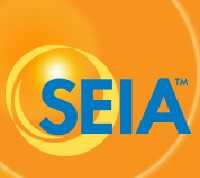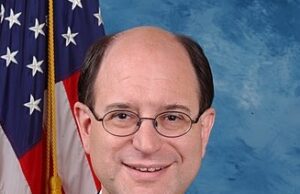Energy Department Announces Six Clean Energy Projects through Partnership with Israel
WASHINGTON, D.C. – November 24, 2015 – (RealEstateRama) — The U.S. Department of Energy (DOE) and Israel’s Ministry of National Infrastructure, Energy and Water Resources (MIEW) today announced $5.1 million for six newly selected clean energy projects as part of the Binational Industrial Research and Development (BIRD) Energy program. Today’s announcement represents the seventh annual selection of BIRD Energy projects, which support President Obama’s comprehensive efforts to combat climate change and develop low-carbon alternatives to traditional energy sources. The announcement builds on the deep, strong ongoing cooperation between DOE and MIEW under the U.S.-Israel Energy Dialogue, which has been bringing together experts from both nations to encourage the use of clean energy technologies, foster natural gas regulations that encourage sustainable development, explore the energy-water nexus and enhance energy cybersecurity.
“Renewable energy and energy efficiency improvements are essential to shaping our clean energy future,” said U.S. Department of Energy Secretary Ernest Moniz. “This partnership with Israel makes possible collaborative investments that move us closer to rigorous technology breakthroughs. These advancements are a key part of modernizing our energy infrastructure, enhancing our energy security, and mitigating the risks of global climate change.”
The program began in 2009 as a result of the Energy Independence and Security Act of 2007. BIRD Energy has approved 28 projects with a total investment of about $22 million, including the six selected projects announced today, which will leverage private sector cost-share for a total project value of $11.3 million.
BIRD Energy projects address energy challenges and opportunities of interest to both countries, while focusing on commercializing clean energy technologies that improve economic competitiveness, create jobs, and support innovative companies.
The six approved projects and their respective funding amounts are:
- 3GSOLAR (Jerusalem, Israel) and Arkema (King of Prussia, PA), $900,000, will develop thin and flexible printed solar photovoltaics (PV) for wireless electronics.
- Ayyeka Technologies, Ltd. (Jerusalem, Israel) and UIS Holdings, Inc. (Dexter, MI),$1,000,0000, will develop smart grid solutions for industrial and commercial buildings to improve energy performance through remote metering and efficiency analytics.
- Haogenplast Ltd. (Kibbutz Haogen, Israel) and Global Solar Energy, Inc. (Tucson, AZ),$900,000, will develop floating PV technology systems to reduce the cost of solar energy production over water reservoirs. Floating PV systems may be attractive options in areas with a shortage of available land for development and can reduce the amount of evaporation from open reservoirs.
- Pentalum Technologies (Rehovot, Israel) and Texas Tech University (Lubbock, TX),$900,000, will collaborate on the development of a light detection and ranging, or LiDAR that would use a system of lasers and software tools and controls to increase power output from wind farms.
- Solaris Synergy (Jerusalem, Israel) and Pristine Sun LLC (San Francisco, CA),$900,000, will collaborate on a utility scale, low-cost floating photovoltaic solar energy system for deployment on water.
- Yissum – The Hebrew University of Jerusalem (Jerusalem, Israel) and Applied Biomathematics, Inc. (Setauket, NY), $500,000, will collaborate to develop software to better assess the impact of wind turbines on avian species, which could assist the permitting process to build wind farms and better protect birds and bats near these facilities.
Projects that qualify for BIRD Energy funding must include one U.S. and one Israeli company, or a company in one of the countries paired with a university or research institution in the other. The companies must present a project that involves innovation in the area of energy and is of mutual interest to both countries. BIRD Energy has a rigorous review process that selects the most technologically meritorious projects along with those that are likely to commercialize and have significant impact. Qualified projects must contribute at least 50 percent to project costs and commit to repay up to 150 percent of the grant if the project leads to commercial success.
Watch Department of Energy Secretary Ernest Moniz discussing the program here:https://www.youtube.com/watch?v=9LDWPMK9VRQ
Visit BIRD Energy to learn more about the program.
NEWS MEDIA CONTACT
(202) 586-4940












